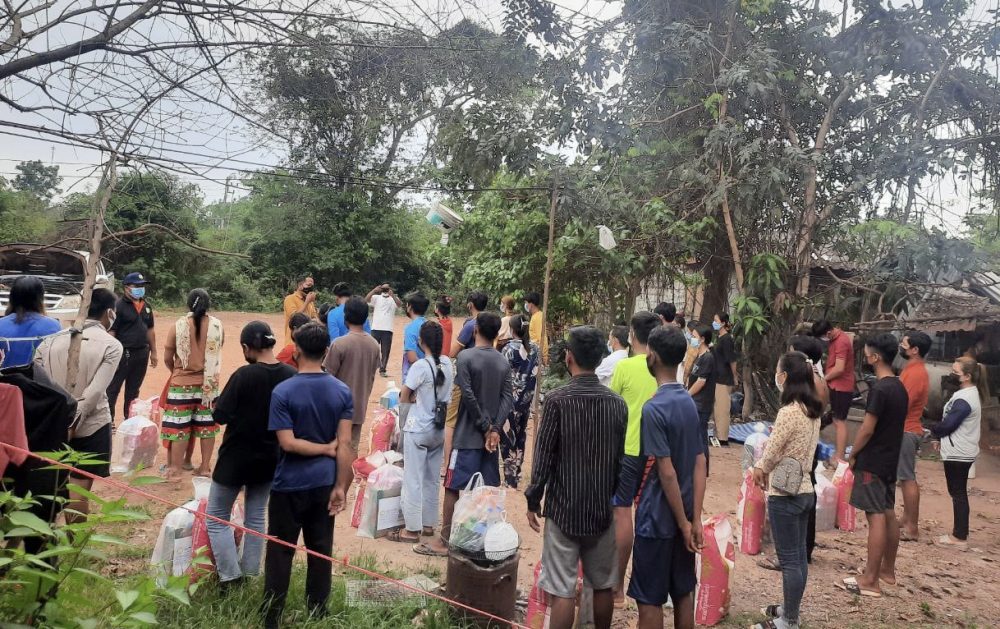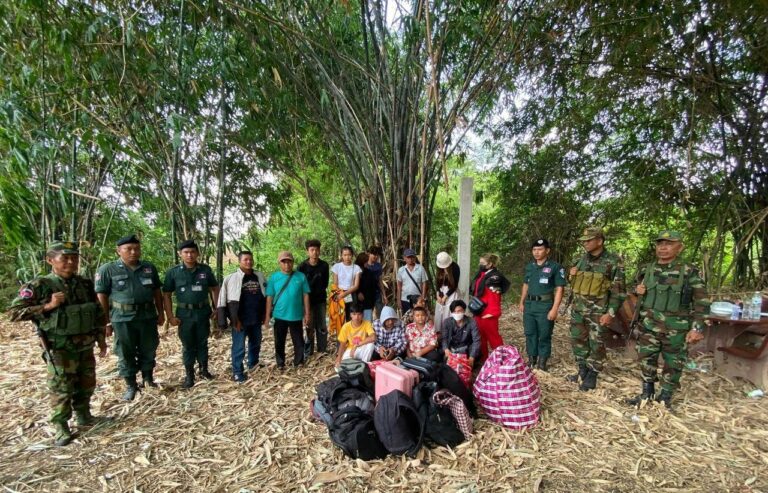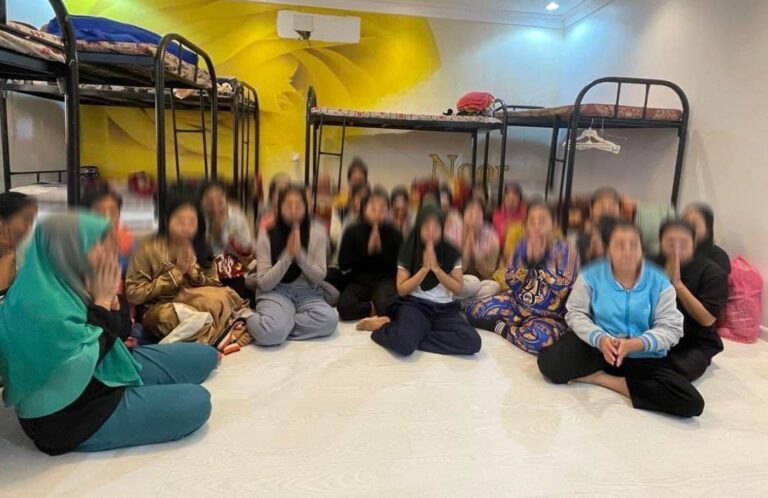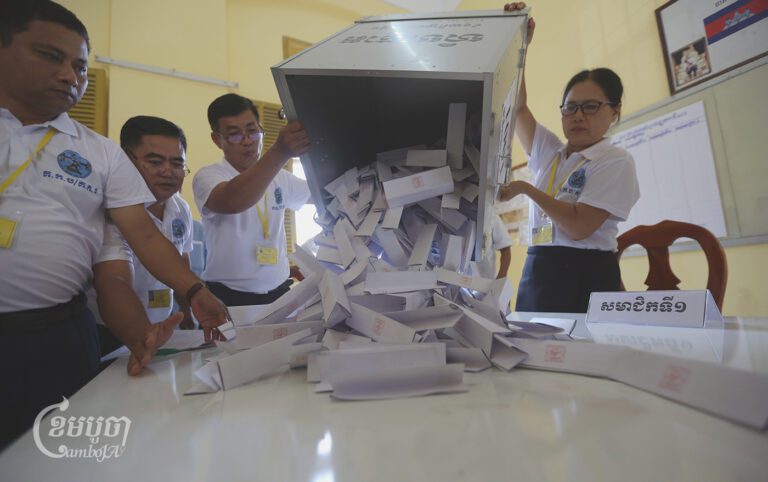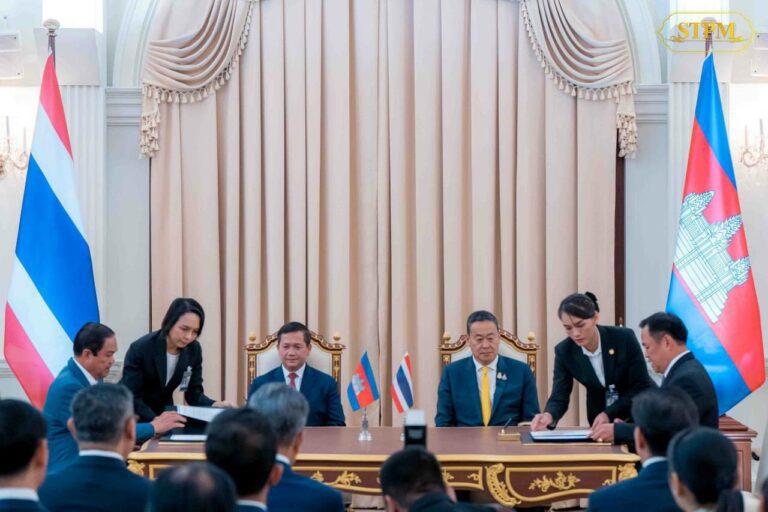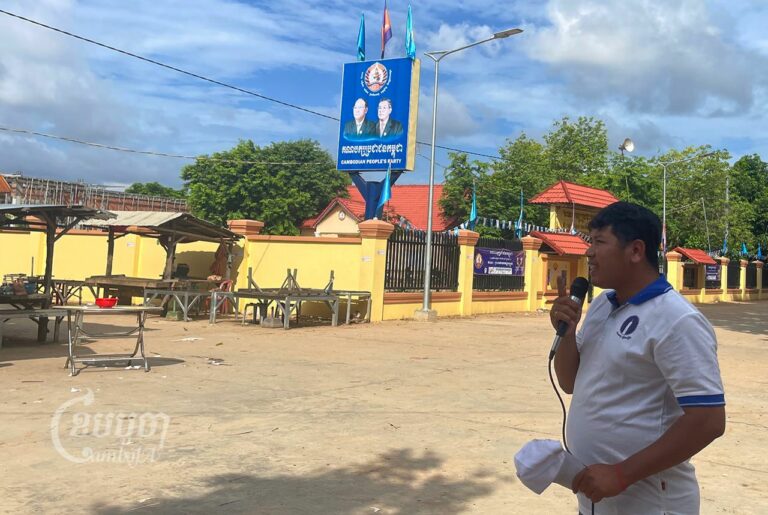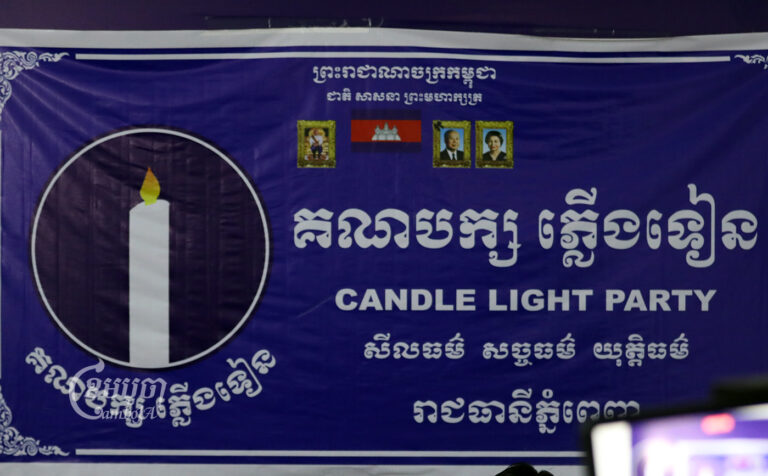More than 2 million Cambodian migrant workers living overseas will be unable to vote in the June 5 commune election because they couldn’t afford to return to the country to register to vote or are unable to get permission to leave from their employers.
Some 9.2 million Cambodians are registered to vote, according to National Election Committee (NEC) spokesman Hang Puthea. However, labor rights organization CENTRAL says most of the 2.5 million migrants working in Thailand, Malaysia, Japan, and South Korea are unregistered.
Sory Bunret, a fifty-year-old from Bavel district, Battambang province, works at an electronics factory in Rayong province, Thailand – a country he’s been living in since 2008. He said he would like to exercise his democratic right to vote but was unable to register due to COVID-19.
While some other Cambodians at his workplace are already registered, he said they might not be able to return to cast their ballots as it depends on the factory – which will be unlikely to want so many of their staff to take leave at once.
“It would be excellent if the Cambodian government…allowed citizens to vote remotely at the embassy in Thailand,” he said. They should “set up voting places in all locations where Cambodian people live and work.”
Ry SokSeyha, 32, has also been working at a factory in Thailand for more than 10 years and detailed how difficult it is for migrants like him to return to register in their hometowns. Work permits, expenditures, and documentation were all issues for him, he explained.
Like Bunret, he thinks the government and the NEC should set up registration and voting centers in Thailand to make it easier for people.
“I am very interested in voting because I would be able to choose a representative who I believe has the capacity to improve conditions in my commune,” he said.
Korn Savang, a coordinator at COMFREL, said that because of the difficulties faced by migrant workers during registration and voting, his organization has repeatedly called on the NEC, the government, and the National Assembly to propose amendments to the law to make it easier for migrant workers to register to vote.
However, there has been no discussion on the issue, even though the opposition Cambodia National Rescue Party has been disbanded.
“In the past, there were a lot of political parties, it was difficult to solve. But now there is only one party, and the problem still has not been solved for migrant workers,” he said.
He added that migrant workers are also citizens who have the right to vote and if they’re unable to exercise this right their commune leader will not have a full mandate.
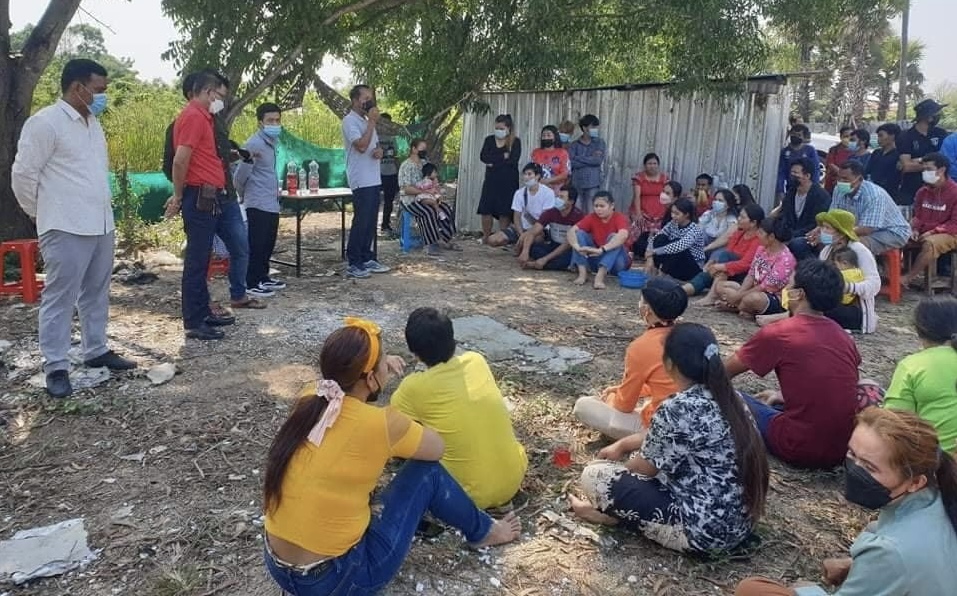
Loeng Sophon, a Thailand-based project officer at CENTRAL, agreed that many Cambodian migrants – 6 out of 10 workers – would like to vote but can’t due to financial obstacles. He told CamboJA that traveling home to participate in the ballot could cost as much as 3,000 baht (about $90) per person.
He also said they should be able to vote at the Cambodian Embassy in Bangkok, adding: “I urge NEC to set up voting places in countries where Cambodian workers live and work.”
However, NEC spokesman Puthea said the election law prohibits overseas voting, adding: “Voting places must be in the villages and communes in the Kingdom of Cambodia.”
As for the absence of the majority of migrant workers from this year’s poll, Puthea said the NEC had fulfilled its role in accordance with the law and disseminated news about the upcoming vote through the Cambodian embassy. It was up to workers now to return home to participate, he said.
But Song Chin, 30, who has worked in the electronics industry in Thailand for over a year, claimed he had not received any voter registration or voting information.
“Almost no workers will return to participate in the election because we are having so many problems,” he said.


